A Former CIA Case Officer Talks About Iconic Watches of Covert Operations
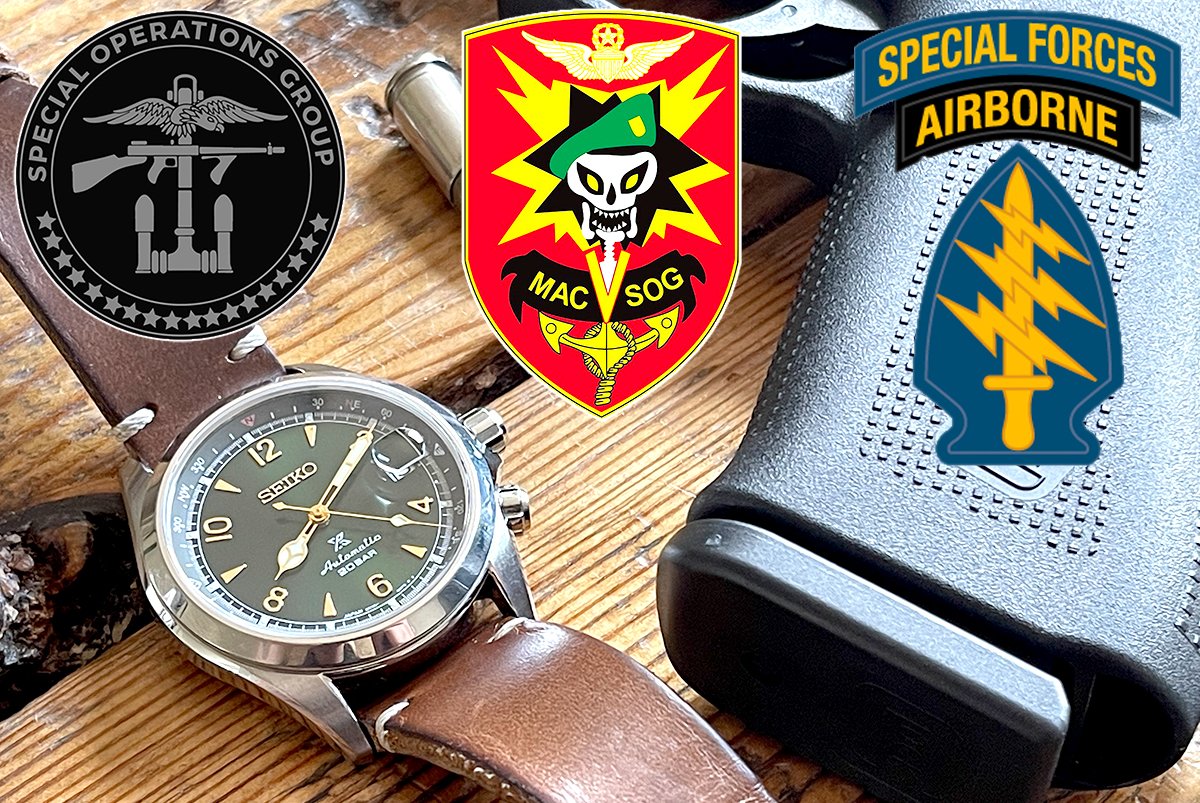
Seiko watches have a long history of being adapted by various military units for their affordability and reliability. Photo by Mac Caltrider/Coffee or Die Magazine.
Ever since James Bond sported the iconic Rolex Submariner 6538 in 1962’s Dr. No, watches and espionage have been linked in the popular imagination. But classy, dependable timepieces aren’t just for fictional secret agents. In the military and intelligence fields, many watches go beyond being mere fashion accessories and have real-world utility. Coffee or Die Magazine sat down with the former CIA case officer behind Watches of Espionage — an Instagram page dedicated to highlighting the crossover between watches, espionage, and military service — to talk about iconic tactical timepieces, why some Special Operations units favor certain watch brands, and the pitfalls of smart technology.
The curator of W.O.E. asked to remain anonymous. This interview has been edited for length and clarity.
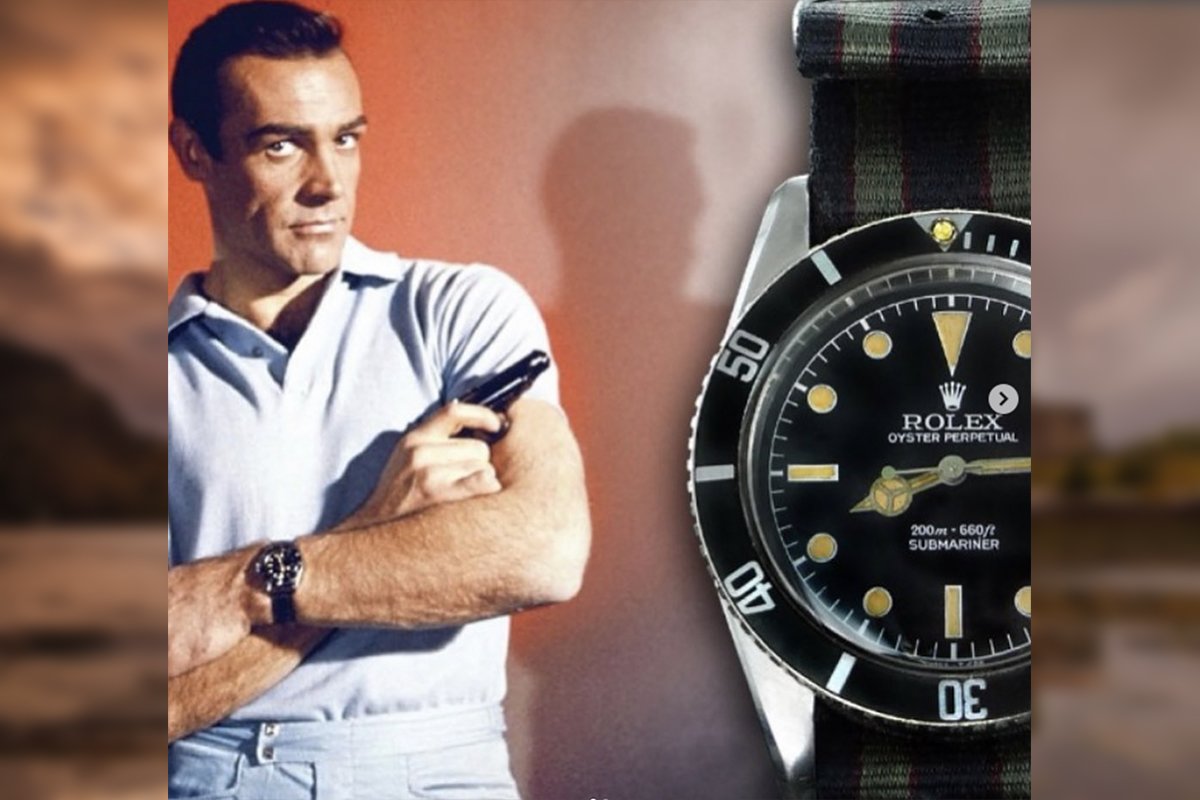
COD: What inspired you to create Watches of Espionage?
WOE: A little over a year ago I realized there was no one really posting about the relationship between watches and spycraft. It was just on a whim, but it has really morphed over time. I started out just posting my watches with a few historical pictures, but it’s really morphed over time and become more about the broader community.
COD: What do you think is the allure of mixing classic watches and espionage?
WOE: It’s twofold. The first is obviously Hollywood. You go back to Ian Fleming and James Bond, but really any spy movie that you see there’s a watch in it — either it’s a real watch, like an Omega or Rolex, or a spy gadget of some kind. So the relationship between watches and espionage is really perpetuated by Hollywood for the average person.
There’s also a really long tradition — especially the special operations and intel communities — of individuals wearing high-end watches for operational purposes. They were originally made as tools for missions, not as fashion statements. If you go back to the Battle of Normandy, you can find watches that those guys were wearing when they hit the beaches, because they needed a robust tool to get on that beach. If you go back to Vietnam, the SEALs and PJs were wearing Tudors and Seikos. It wasn’t a fashion statement; they needed those reliable tools.
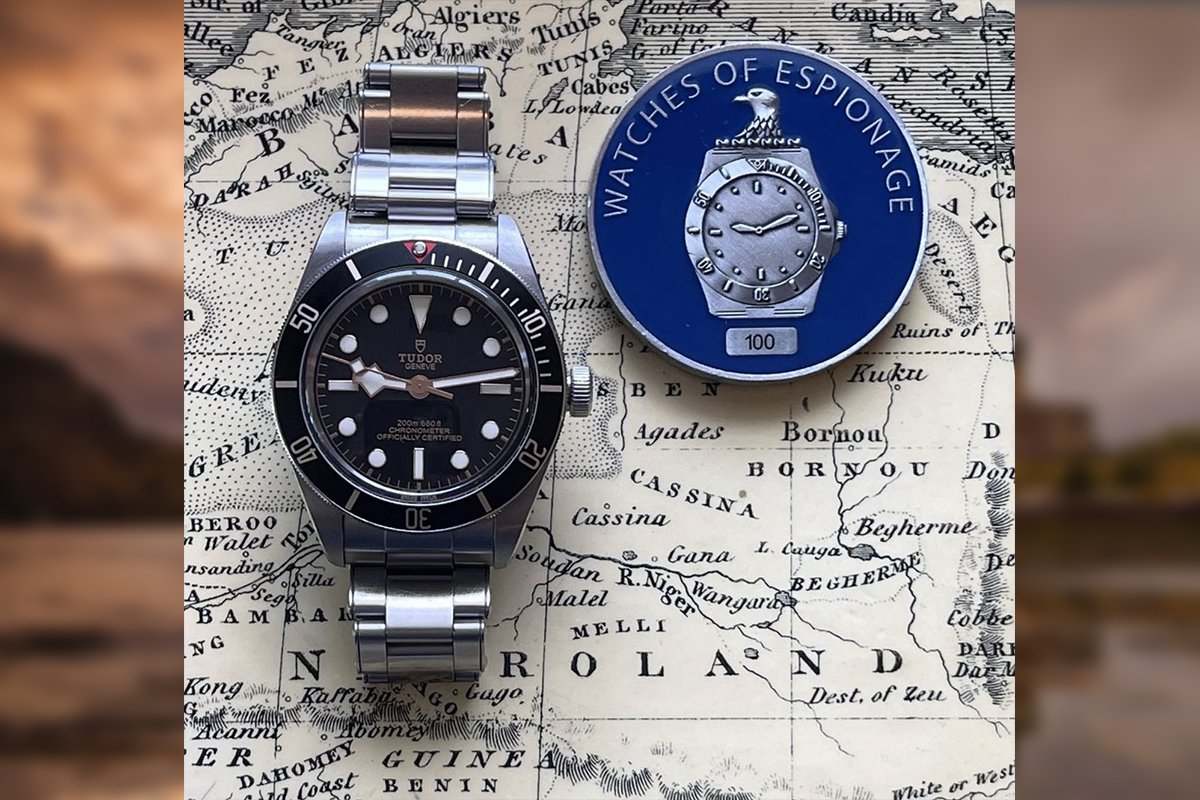
Pretty much any significant conflict has corresponding watches. In the early days of the conflicts in Iraq and Afghanistan, everyone was rocking G-Shocks or Garmins, because they needed a good tool — there was a practical utility to it. In the Agency you can’t necessarily carry a smartwatch or a phone everywhere you go because of the metadata collected, so you need a good, reliable timepiece.
COD: Selecting a watch doesn’t seem to be all about practicality though. Why do some watches have such strong ties with military units? Is it part of their culture?
WOE: Military units really develop strong cultures. For example, all pilots from one squadron might really want one particular watch, because all their instructors were wearing that watch. Another good example is Navy SEALs. They have a strong relationship with Panerai. A Panerai watch is not a practical tool anymore. I imagine when guys went on the Bin Laden raid they weren’t wearing a Panerai. They were probably wearing a Garmin or a G-Shock or something like that. But they’ve kind of identified with that brand the same way the Special Forces community has with Rolex as kind of a part of their heritage.
Still to this day, SF guys want Rolex Submariners because three generations back members of that community were buying them when they finished the Q Course, or whatever it was called back then. So a lot of it is kind of that sentimental value.
It is the same with American pilots. I’m sure a lot of guys wear those IWC watches on missions, but I think more of the reasoning behind it is they want to get their unit emblem on it so that when they leave the military and go do something different they can look at that watch and reflect on that time period.
COD: What are some of the most iconic and well-established pairings between watches and specific units?
WOE: Rolex is probably crosscutting all of the branches and the Agency. Panerai has a strong connection in the SEAL teams, but Rolex and SEALs also have a strong connection. Less so now, but Tudors — a sub-brand of Rolex — have a strong connection to the SEALs of Vietnam. Seiko is another brand with deep ties to the military. They make cheaper tool watches, and a lot of watches designed specifically for diving. I think the SEALs and Special Forces issued them in the ’70s, ’80s, and early ’90s. Breitling has pretty strong ties with pilots, though some Delta guys have had custom Breitlings made for them.
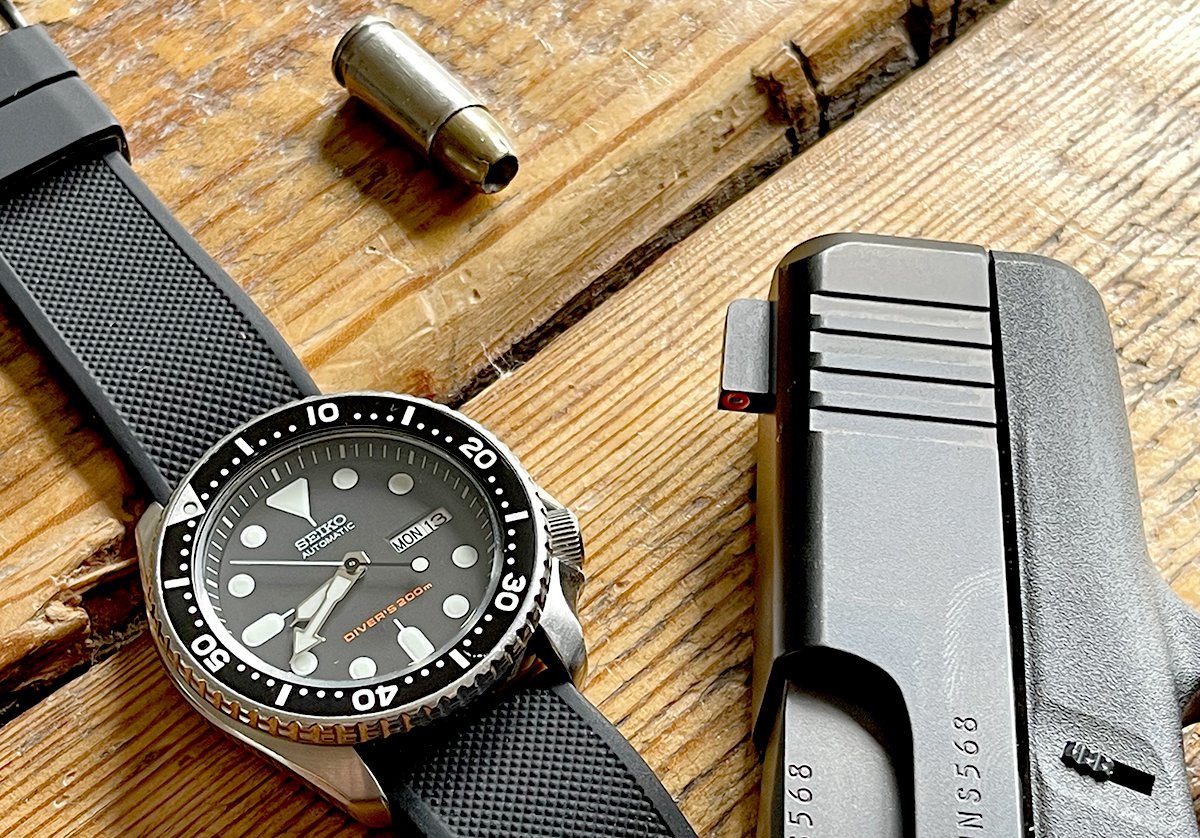
Now, the Agency is different, because you’re normally operating alone, so you see more individualism in the Agency. If every case officer in the world was wearing, say, a green Rolex Submariner that’s obviously an issue. So there aren’t any real trends. You see a lot of Rolex, Breitling, Panerai, and Omega, but it’s not like everyone’s wearing the same one.
COD: Are there some newer brands breaking into this niche field of mixing military tool watches with automatic movements typical of classic timepieces?
WOE: There are a lot of micro brands that have popped up recently, made either by active-duty guys or veterans. Sangin Instruments — founded by Marine veterans — is probably the biggest that you see. Resco is another one, founded by a SEAL. There’s dozens of them. Bremont is another newer company that’s heavily focused on the military.
COD: Are there any watches out there you’re drooling after? If money or supply was no issue, what watch would you put on your wrist?
WOE: What I’m really interested in now are vintage watches, specifically military-issued Tudors — the ones that would have been issued to special operations units in the ’60s, ’70s, and ’80s. They’re actually not incredibly expensive in the realm of watches, considering a new Submariner might cost 20 grand. You can get these vintage Tudors — if you can find them — for half that. I think that that’s kind of an important thing. There’s this trend toward wanting the most expensive watch, like these brand-new watches you’ll never obtain from Patek Philippe. That’s kind of where things have been trending over the past couple of years, but I’ve kind of gone the opposite direction. I’m more interested in finding the real tool watches out there that you don’t have to baby, watches designed and developed to be in mud or to be used underwater. That interests me more than some guy who just spent $5 million.
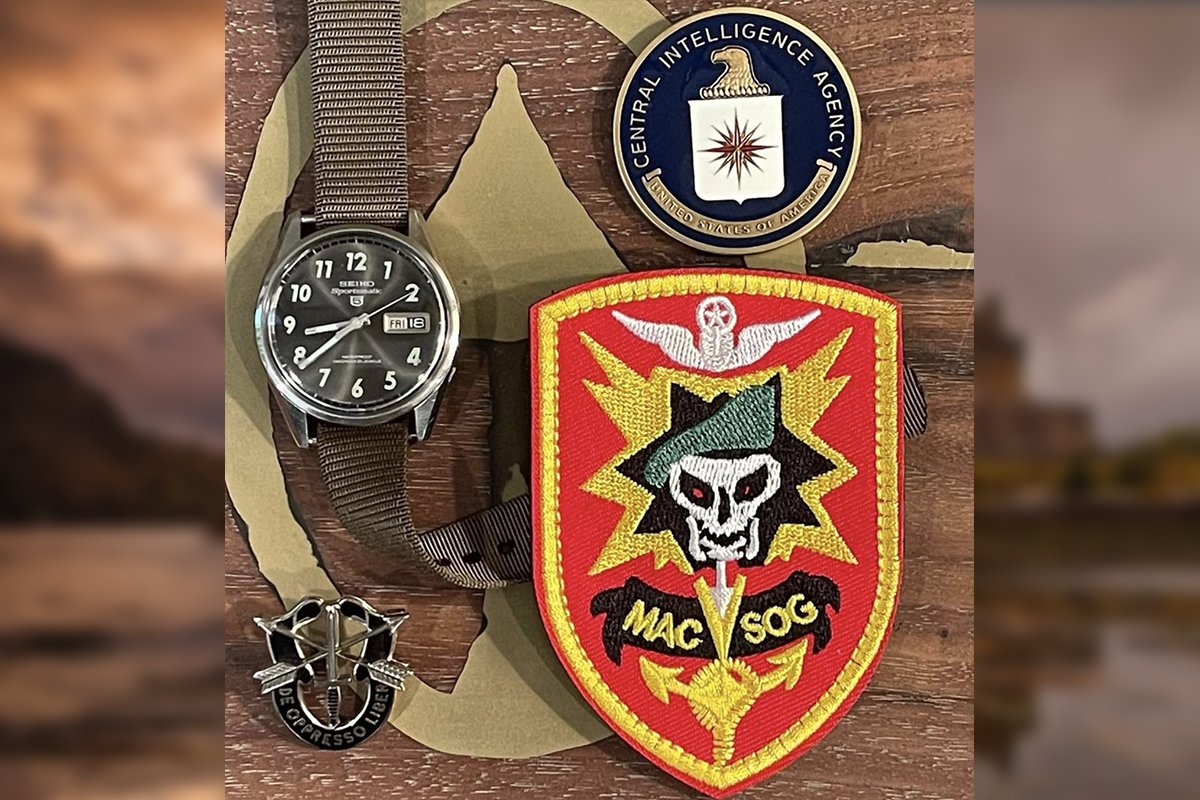
COD: For people interested in owning a piece of history and getting into watches, what are some brands and models they should consider?
WOE: Seiko has some incredible watches for under $1,000 that are phenomenal. They are the Toyota of watches. They have really strong ties to the military, intelligence, and national security communities writ large. The second part of that being if you’re a veteran, I would look at some of those micro brands like Sangin, Resco, and Bremont.
COD: How can people support your page?
WOE: I’ve written a few articles about the page and always donated every dime of that money to Third Option Foundation, which supports the Agency’s paramilitary officers. I always ask people who want to support Watches of Espionage to instead make a donation to Third Option.
Read Next: Why Navy SEALs in Vietnam Wore Bluejeans Instead of Jungle Fatigues
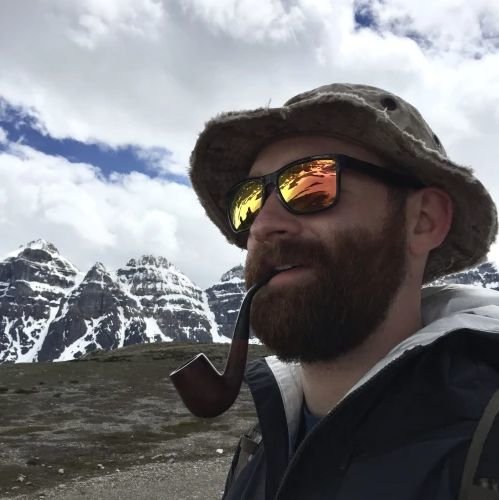
Mac Caltrider is a senior staff writer for Coffee or Die Magazine. He served in the US Marine Corps and is a former police officer. Caltrider earned his bachelor’s degree in history and now reads anything he can get his hands on. He is also the creator of Pipes & Pages, a site intended to increase readership among enlisted troops. Caltrider spends most of his time reading, writing, and waging a one-man war against premature hair loss.
BRCC and Bad Moon Print Press team up for an exclusive, limited-edition T-shirt design!
BRCC partners with Team Room Design for an exclusive T-shirt release!
Thirty Seconds Out has partnered with BRCC for an exclusive shirt design invoking the God of Winter.
Lucas O'Hara of Grizzly Forge has teamed up with BRCC for a badass, exclusive Shirt Club T-shirt design featuring his most popular knife and tiomahawk.
Coffee or Die sits down with one of the graphic designers behind Black Rifle Coffee's signature look and vibe.
Biden will award the Medal of Honor to a Vietnam War Army helicopter pilot who risked his life to save a reconnaissance team from almost certain death.
Ever wonder how much Jack Mandaville would f*ck sh*t up if he went back in time? The American Revolution didn't even see him coming.
A nearly 200-year-old West Point time capsule that at first appeared to yield little more than dust contains hidden treasure, the US Military Academy said.












